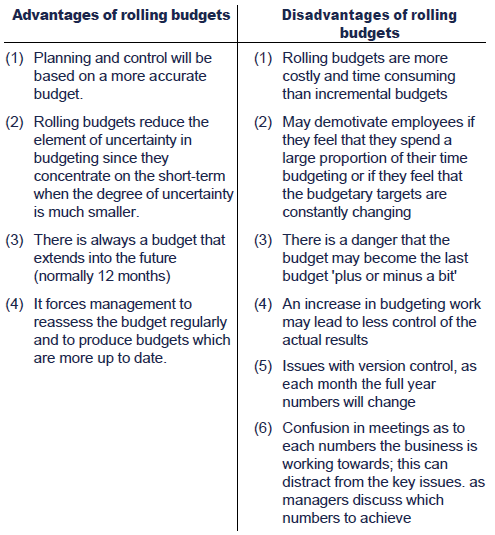Rolling Budgets
Rolling budgets are one approach to preparing budgets.
Rolling budgets
A budget (usually annual) kept continuously up to date by adding another accounting period (e.g. month or quarter) when the earliest accounting period has expired.
Suitable if:
- accurate forecasts cannot be made. For example, in a fast moving environment.
- or for any area of business that needs tight control.
Illustration - Rolling budgets
A typical rolling budget might be prepared as follows:
(1) A budget is prepared for the coming year (say January - December) broken down into suitable, say quarterly, control periods.
(2) At the end of the first control period (31 March) a comparison is made of that period's results against the budget. The conclusions drawn from this analysis are used to update the budgets for the remaining control periods and to add a budget for a further three months, so that the company once again has budgets available for the coming year (this time April - March).
(3) The planning process is repeated at the end of each three-month control period.
Advantages and disadvantages of rolling budgets

|
Created at 6/7/2012 4:30 PM by System Account
(GMT) Greenwich Mean Time : Dublin, Edinburgh, Lisbon, London
|
Last modified at 11/1/2016 12:14 PM by System Account
(GMT) Greenwich Mean Time : Dublin, Edinburgh, Lisbon, London
|
|
|
|
 |
Rating
:
|
 Ratings & Comments
(Click the stars to rate the page) Ratings & Comments
(Click the stars to rate the page)
|
 |
Tags:
|
|
|
|
|